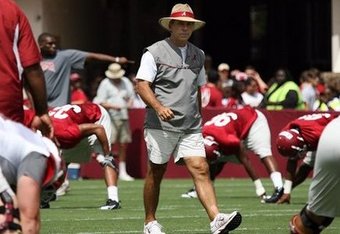I just had a conversation with Tom Roth who introduced me to some of the work that The Pacific Institute does. Tom and I had an interesting discussion on data centers as he is familiar with real estate development in Eastern Washington’s recent data center build out that has used up hydroelectric power which has little employment impact the original dam developers intended.
When I heard of Tom’s company I thought of some of the top data center leadership (Urs Hoelzle, Mike Manos and Olivier Sanche) all leaders with better people skills better than most. It made sense that the flaw in many data center is not thinking about psychology and the people.
Tom Roth was a college quarterback at WSU and his brother, Joe Roth was a Cal quarterback.
* Cardiac QB Tom Roth wasn’t the only standout signal caller in his family. Younger brother Joe starred at Cal and finished sixth in Heisman Trophy balloting as a senior in 1976. Tragically, he died of melanoma cancer three months after that season ended. He was forecast to be a first round NFL draft pick.

Behind the Helmet: The Life of Joe Roth
Joe Roth was an exceptional
Joe lived with class and he died with dignity. His football success brought him a great deal of individual attention which he shied away from and shared with his teammates. He was determined to battle his cancer and live his life without pity, excuses, blame, and special attention. Joe taught his teammates, coaches, professors, classmates, friends, fans, and family members to cherish life and to never take a moment for granted.
Joe's life still serves as a model for all of us to live with faith, humility, and courage.
Running a Google search for “The Pacific Institute” I turned up this article about Alabama’s football coach Nick Saban use of The Pacific Institute training.
The Science of Alabama's Nick Saban
Larry Burton (Panama City Beach, Fla.): The longer I am around Nick Saban, the more I learn about him.
I guess that's true of anyone you know. But I am always surprised when I see a new layer of Saban peeled back.
To understand Saban is like dealing with a mutating virus. Constantly changing, always working, always seeking to grow, and infectious to others.
Of course, I mean all that in a good way.
This sounds like the data center innovators, not a typical data center IT mindset. Can you imagine if football was played the way IT is run? Boring and out of sync with current practices like IaaS, PaaS, and other Cloud Computing methods.
Alabama used the Pacific Institute for mental conditioning.
It's all just one more part of the Science of Saban.
Then there is the mind itself. Not just inputting the playbook and the knowledge to do your job, but how to condition your mind, just like your body.
For this, Saban brought in the Pacific Institute, a Seattle-based company that has conducted mental conditioning classes for Crimson Tide players since 2008. So if you have a new untested quarterback as Alabama did last season, you get his mind as conditioned as his arm.
"They've proven to us you can be so much more effective if your mind is allowing you to be effective," quarterback Greg McElroy said. "Both Antowaine and Nesby (Pacific Institute instructors) have helped us incredibly."
We talked about the kind of off-the-field activity that had Alabama players in the headlines a few years back. Now, that too has disappeared, thanks in part to the science of Saban and the Pacific Institute.
Forbes even mentions The Pacific Institute in their article about the most powerful football coach.
All players have to attend personal growth seminars taught by Seattle's Pacific Institute.
I don’t think I’ve run into a Psychology and Data Center discussion, but it makes so much sense. In the same way a good quarterback makes critical decisions for the rest of the team, shouldn’t data center staff have the skills of a top quarterback.
The main problem is getting IT executives to spend money on people. A few will get this idea and realize most IT problems are related to a decision someone made before or after an event.
For all the money spent on IT, shouldn’t more be spent on Mental Conditioning, the psychology of a data center?
I am looking forward to many more discussions with Tom Roth and his network to discuss psychology in the data center.

